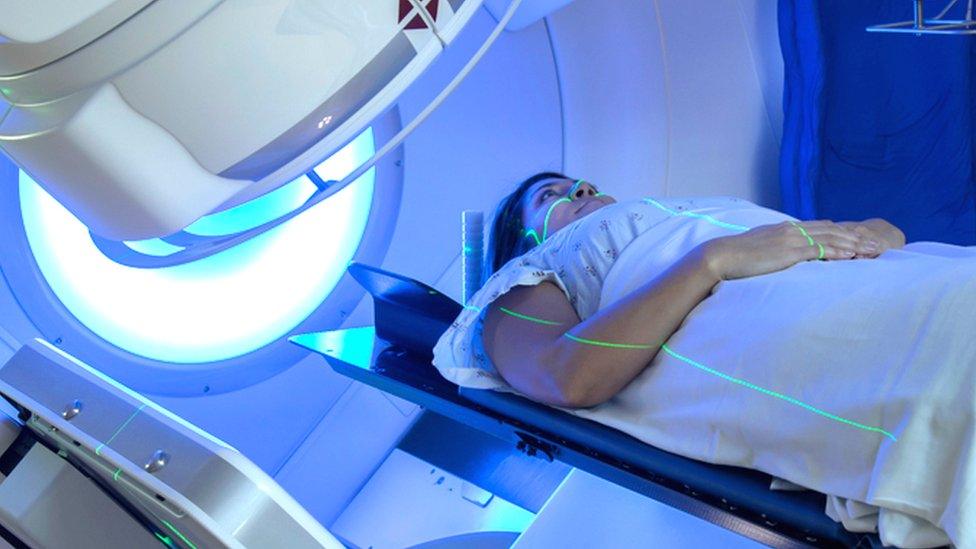Cancer: Couple raising £250k to treat brain tumour
- Published
Owain James: "I feel OK. I have got to look at it like that - I will keep going"
A man with an incurable brain tumour is hoping to raise £250,000 for treatment not currently available on the NHS.
Owain James, 34, from Caerphilly, has been told he could have just months to live without additional treatment.
His wife Ellie James said she felt "frustrated" and "overlooked" as the family attempts to crowdfund the money.
The Welsh government said the NHS only offered treatments that had been assessed by expert bodies for their clinical and cost-effectiveness.
The charity Brain Tumour Research called for better funding for research and labelled Mr James' situation "unacceptable".
Mr James, who has an 18-month-old daughter, said he first noticed symptoms in February, initially having "funny moments" where he felt slightly unwell.
But by the end of the summer the symptoms had become worse.
"August Bank Holiday I woke up with the worst headache I have ever had," explained Mr James, who had been playing football and ran a 10K race in the months before his diagnosis.
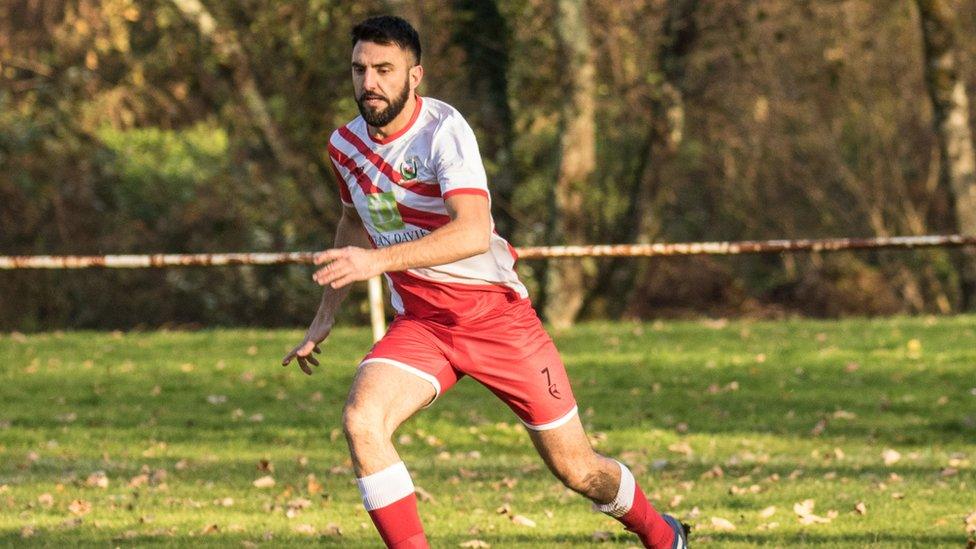
Owain James regularly played football and ran 10K races before his diagnosis
"I couldn't move without feeling like someone was stabbing me. Every time I moved it hurt. I thought, something's not right," he added.
He said his wife thought they needed to go to A&E, even though he thought it was a bit "over the top" for a headache.
After tests, doctors told him he had a 14cm-wide (5.5in) grade four tumour on his brain which could have been there for up to ten years.
Surgeons quickly operated and managed to remove 80% of it, but told Mr James that with the treatment available on the NHS, he may have just months to live.

Owain and Ellie got married earlier this month
"It didn't really sink in straight away and it hasn't really sunk in now. I thought, I am only 34, I shouldn't be thinking of things like this," said Mr James.
The couple got married earlier this month and Owain is now undergoing intensive chemotherapy and radiotherapy but has been told by his doctor that two kinds of treatment could extend his life - one called DCVax and one called Optune.
'Insufficient evidence of effectiveness'
DCVax, a type of immunotherapy, uses a vaccine which utilises the body's immune cells to target the cancer.
It is currently in the third phase of clinical trials but initial results suggest it could help patients like Owain.
Optune is a device that looks like a skull cap which creates electrical fields to disrupt tumour cell division.
In 2018, the body which advises the NHS on treatments, NICE, said there was "insufficient evidence of its clinical effectiveness in terms of improvement in overall survival and progression-free survival to make the technology cost effective".
It leaves Mr James and his family trying to raise £250,000 to access the treatments.
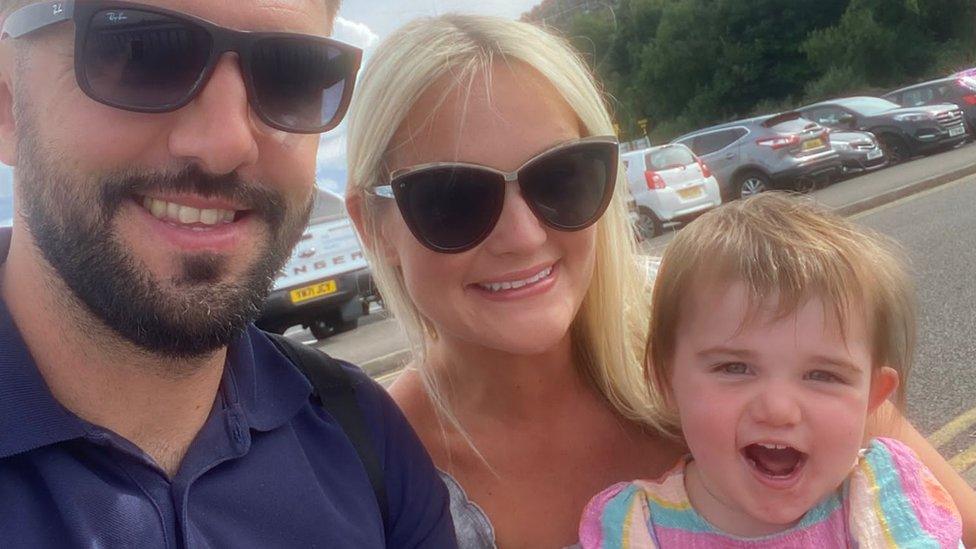
Ellie James says funding should be decided on a case-by-case basis
Mrs James said she believe that the system is "unfair" and that there should be options for patients to be considered for NHS treatment on a case-by-case basis.
"I get it. I assume it's because a lot of the people in Owain's situation are a lot older," she said.
"But there is a significant amount of people that do suffer from brain tumours who are young. I feel we are just overlooked and missed by funding and support.
"That's the real frustration. They've got their set rules, they've got their set boundaries and there's no flexibility."
Research 'falling behind'
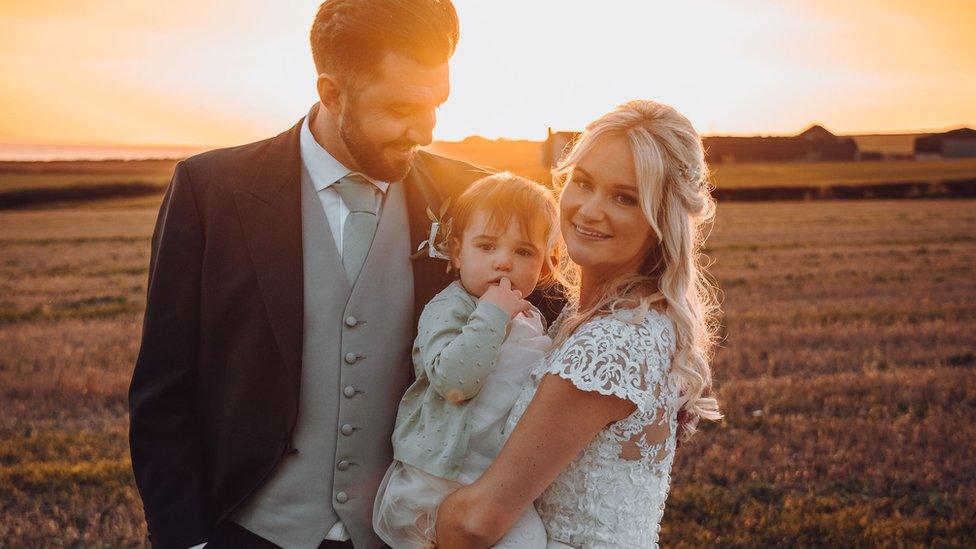
Mr James says he is trying to focus on the present, despite his condition
The Brain Tumour Research charity say they see "many families" in a similar position.
Hugh Adams, from the charity, said research into brain tumours had "fallen behind" other cancers such as breast cancer or leukaemia, both of which now have much better prognoses as a result of research.
"It's about time we need to do something different. And it is about the government stepping up to to fund more research
"I think, for Owain's family at this moment in time, it's unacceptable that the only option is for them to self-fund."
Fundraising events have been organised in the weeks ahead, with Mr James' fund-raising page having raised more than £30,000.
Despite the uncertainty, Mr James is just trying to focus on the here and now.
"I could just read on my phone, everything that's the matter with me and it could get me in a really dark place. But I feel positive about it all. I feel OK. I have got to look at it like that - I will keep going."
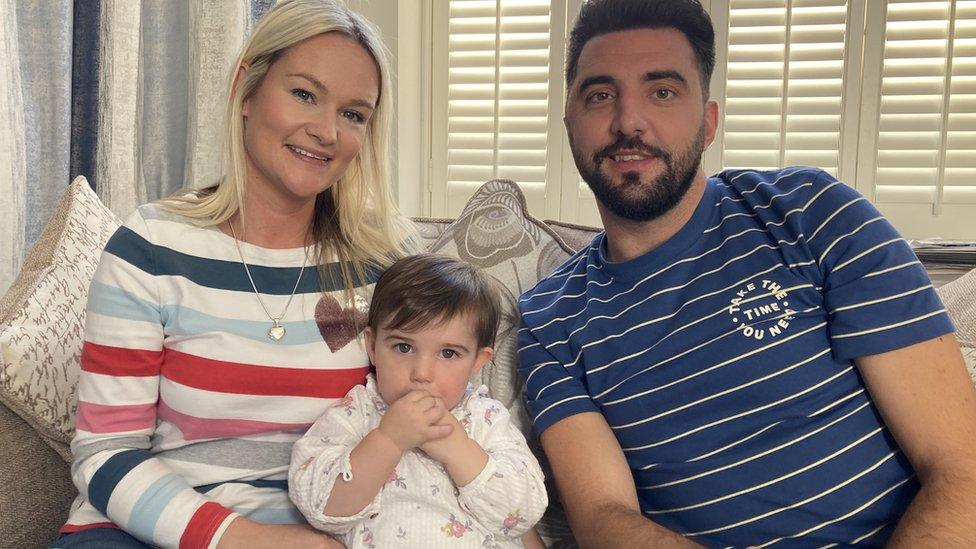
Owain James, who has an 18-month-old daughter with wife Ellie, has been told he may have just months to live without additional treatment
A Welsh government spokesperson said: "We are investing in the research of new treatments for many kinds of cancer, including brain tumours, through our own schemes and through UK-wide research.
"Cancer centres across Wales have processes in place to identify, take part in or refer people into open clinical trials and we expect eligible patients to be referred into open clinical trials.
"The NHS makes available treatments that are recommended by expert bodies that have assessed the clinical and cost-effectiveness of those treatments.
"When a treatment is not routinely available, the treating clinicians have the option of making an Individual Patient Funding Request."
Related topics
- Published7 January 2022
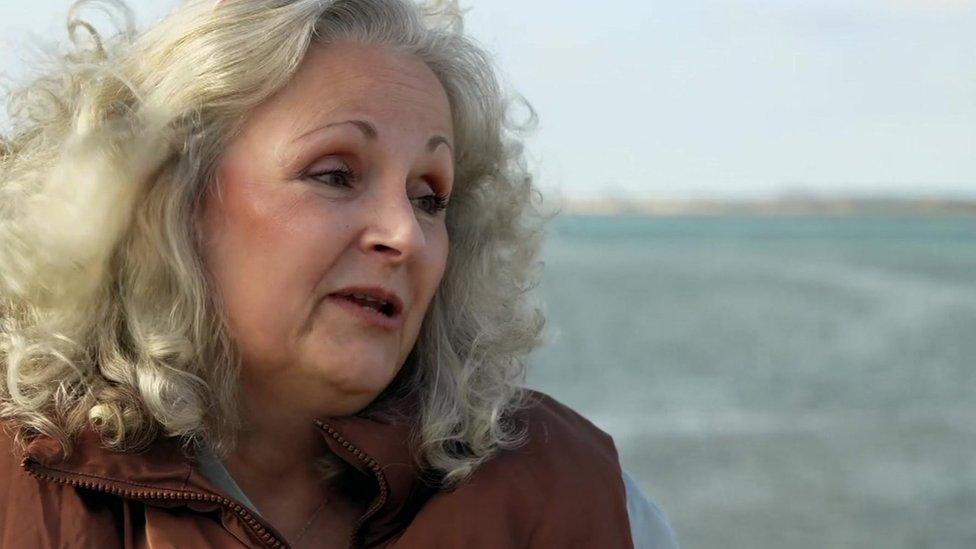
- Published15 October 2022
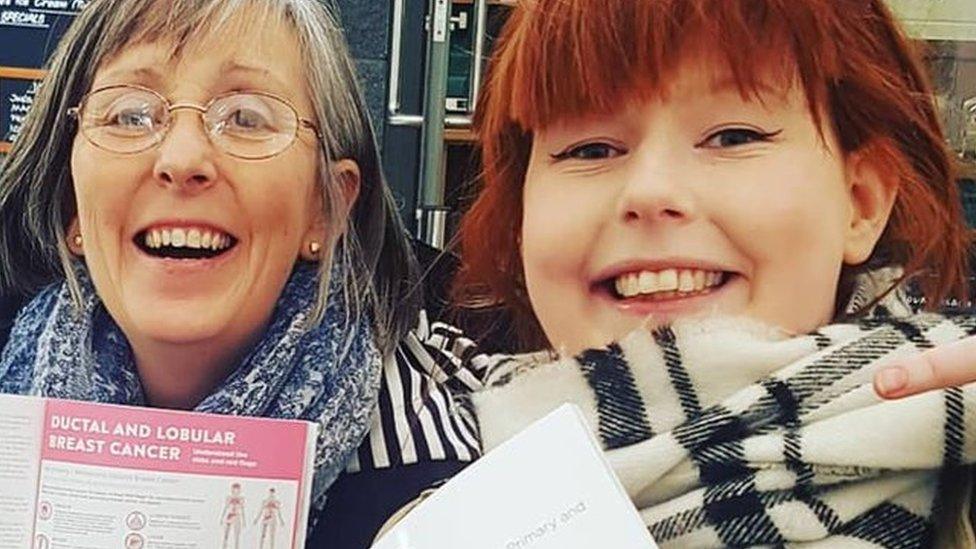
- Published6 October 2022
